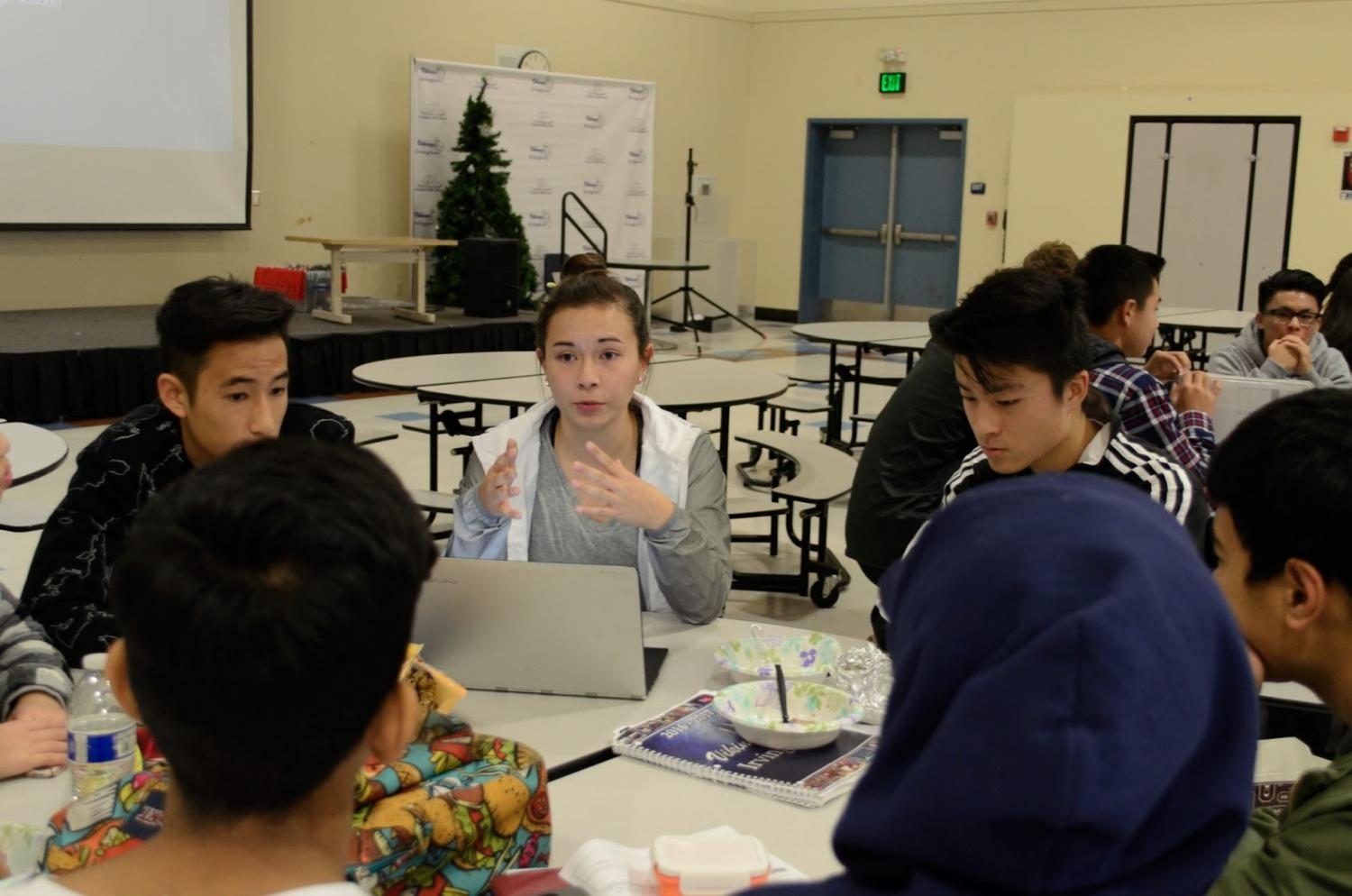ASB hosts second public forum
Sophomore class officer, Jasmine Tong-Seely, responds to students’ questions about the importance of school spirit.
December 7, 2016
Associated Student Body held its second Public Forum on Dec. 7 during advisory, reforming the event to accommodate the plethora of criticism it had received after the earlier forum. Previously, Irvington students described the event as lacking student participation due to inadequate publicity. In efforts to reverse that, ASB visited advisories the day before advertising the event and its purpose in addition to giving out tutorial passes to interested students so it would be more convenient to attend. As a result, more than 80 students attended, significantly more than the first Public Forum.
In addition to increasing publicity, ASB also switched up the event to become more interactive. ASB’s initial method of giving updates on school events and then allowing students to come up and propose ideas did not account for the students who felt uncomfortable speaking in front of large audiences.
“We decided to change it into round table discussions so we can have actual personalized conversations with students. We felt that allowing attendees to talk directly with a few ASB members was better than making attendees talk to all of ASB,” said ASB Secretary, Krishna Vachhani (12).
Opinions on the new format were split among students with some appreciating the more personalized level of interaction, while others missing the ability to talk to the entirety of ASB.
Sophomore Aaron Lin recounted, “I like the old one more. The recent public forum made me feel less important. I ended up arguing against other people who don’t matter in terms of actual policy making when in the previous one I could ask the entire ASB leadership.”
On the other hand, Roshni Srivastava (10) stated, “I enjoyed the format of the smaller groups because I felt like ASB was actually listening to each and every one of our comments and suggestions. In the end, I felt more represented and it was more efficient.”
Regardless of the split opinions, ASB’s public forum was still able to achieve its foremost goal of increasing communication about prevalent school issues whether or not it was between ASB and the students or among the student body themselves.










